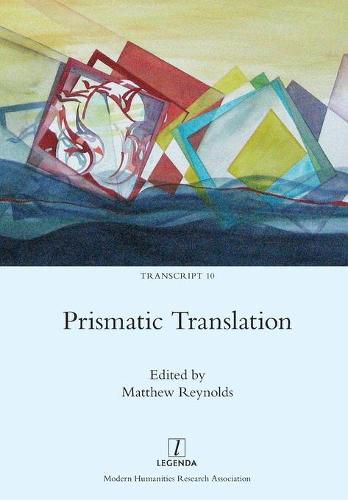Readings Newsletter
Become a Readings Member to make your shopping experience even easier.
Sign in or sign up for free!
You’re not far away from qualifying for FREE standard shipping within Australia
You’ve qualified for FREE standard shipping within Australia
The cart is loading…






This title is printed to order. This book may have been self-published. If so, we cannot guarantee the quality of the content. In the main most books will have gone through the editing process however some may not. We therefore suggest that you be aware of this before ordering this book. If in doubt check either the author or publisher’s details as we are unable to accept any returns unless they are faulty. Please contact us if you have any questions.
Translation can be seen as producing a text in one language that will count as equivalent to a text in another. It can also be seen as a release of multiple signifying possibilities, an opening of the source text to Language in all its plurality. The first view is underpinned by the regime of European standard languages which can be lined up in bilingual dictionaries, by the technology of the printed book, and by the need for regulated communication in political, academic and legal contexts. The second view is most at home in multilingual cultures, in circumstances where language is not standardised (e.g., minority and dialectal communities, and oral cultures), in the fluidity of electronic text, and in literature. The first view sees translation as a channel; the second as a prism.
This volume explores prismatic modes of translation in ancient Egypt, contemporary Taiwan, twentieth-century Hungary, early modern India, and elsewhere. It gives attention to experimental literary writing, to the politics of language, to the practices of scholarship, and to the multiplying possibilities created by digital media. It charts the recent growth of prismatic modes in anglophone literary translation and translational literature; and it offers a new theorisation of the phenomenon and its agonistic relation to the ‘channel’ view. Prismatic Translation is an essential intervention in a rapidly changing field.
$9.00 standard shipping within Australia
FREE standard shipping within Australia for orders over $100.00
Express & International shipping calculated at checkout
This title is printed to order. This book may have been self-published. If so, we cannot guarantee the quality of the content. In the main most books will have gone through the editing process however some may not. We therefore suggest that you be aware of this before ordering this book. If in doubt check either the author or publisher’s details as we are unable to accept any returns unless they are faulty. Please contact us if you have any questions.
Translation can be seen as producing a text in one language that will count as equivalent to a text in another. It can also be seen as a release of multiple signifying possibilities, an opening of the source text to Language in all its plurality. The first view is underpinned by the regime of European standard languages which can be lined up in bilingual dictionaries, by the technology of the printed book, and by the need for regulated communication in political, academic and legal contexts. The second view is most at home in multilingual cultures, in circumstances where language is not standardised (e.g., minority and dialectal communities, and oral cultures), in the fluidity of electronic text, and in literature. The first view sees translation as a channel; the second as a prism.
This volume explores prismatic modes of translation in ancient Egypt, contemporary Taiwan, twentieth-century Hungary, early modern India, and elsewhere. It gives attention to experimental literary writing, to the politics of language, to the practices of scholarship, and to the multiplying possibilities created by digital media. It charts the recent growth of prismatic modes in anglophone literary translation and translational literature; and it offers a new theorisation of the phenomenon and its agonistic relation to the ‘channel’ view. Prismatic Translation is an essential intervention in a rapidly changing field.